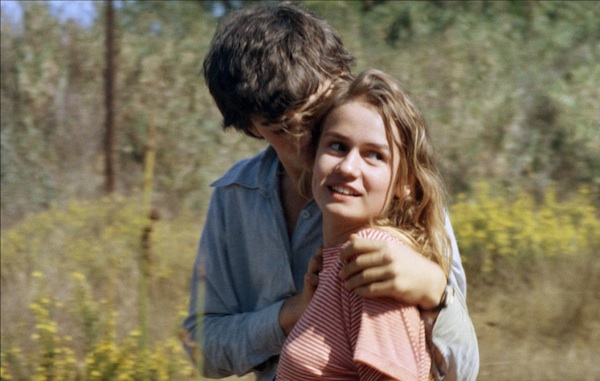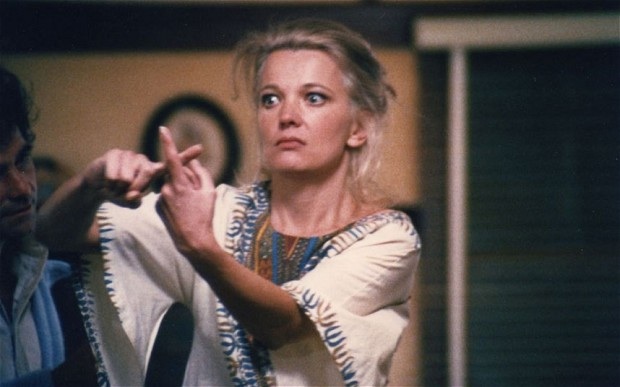[Editor’s note: This is one in a series of articles highlighting new features hitting Fandor from the Criterion Collection via Hulu Plus. This feature focuses on films from the “Family Troiubles” theme.]
There are two things nearly everybody says about Maurice Pialat. The first is that his work is defined by conflict—by tensions in theme and style that are never quite resolved. Kent Jones calls it his “push/pull” quality. In Film Comment, Max Nelson speaks of the director’s “meticulous crudity:” An apparent inelegance that is in fact totally precise. And Fernando F. Croce, writing in Slant Magazine, describes the “emotional contradiction” at the heart of Pialat’s films, which offer “a vision of startling roughness in perpetual bloody conflict with extraordinary delicacy.” The other thing nearly everybody says about Maurice Pialat is that he is the John Cassavetes of France. (Or rather everybody says that everybody says this—a critical shorthand whose ubiquity has been somewhat self-fulfilling. Scarcely have the words “has often been called” preceded a comparison so prevailingly.) These observations are closely related. They elucidate a kinship: A shared affection, in the films of Pialat and Cassavetes both, for the antagonisms we cannot reconcile.
Let us consider A nos amours, Pialat’s exquisite film of 1983. It is the story of Suzanne (Sandrine Bonnaire), a teenaged girl enjoying the radiant bloom of womanhood, and the father, played by Pialat himself, who unceremoniously abandons her. It’s also the story of her brother (Dominique Besnehard) and mother (Evelyne Ker), at once her caretakers, confidants and sparring partners, as well as the story of the manifold suitors (Cyr Boitard and Cyril Collard chief among them) in whose company she nightly indulges. But more than anything else A nos amours is the story of a family struggling to accommodate the independence of one its members—an independence that denotes sexual agency. Pialat is sensitive to the development of his hero’s body in tandem with her awareness and appreciation of it. It’s the cliche routinely invoked in coming-of-age fiction: An awakening. Suzanne, in her flourishing nubility, is intrigued to find herself desired. And desiring: voraciously, insatiably. Suzanne’s sexuality is luminous and irrepressible; she delights in it.
A nos amours begins with Suzanne in the throes of summer camp, lolling in the sun. She has a boyfriend, the broodingly handsome Luc (Boitard), whose advances in the woods she resists irritably—a rejection that he doesn’t take particularly well. In defiance, or perhaps in retaliation, she succumbs soon after to the overtures of a visiting American, lying down with him one evening after a night of poorly translated flirtation at the local bar. Thus ‘awakened’, Suzanne returns home ready for more, and from here on out she embraces her promiscuity unabashedly: Hardly a night goes by that she isn’t bounding into the bed of another man, usually under the guise of an innocent night out with friends—not that her parents buy the excuses. Suzanne’s family dynamic, you sense, is already a precarious one, as if the slightest provocation might upset a balance that for years has remained only loosely sustained. And here comes this budding ingenue, swinging carnality like a sledgehammer. It’s the classic Pialat tension: roughness and delicacy, impossible to reconcile.
Her father, a fur tailor possessed of a rather volatile temperament, regards Suzanne’s brazen dalliances with growing impatience, enduring them begrudgingly one minute and blowing up at her the next. He bears the traditional grievances of fatherhood: “Time flies,” he mutters to himself resignedly after Suzanne absconds for the evening, well aware that her “movie date” boasts a considerably less wholesome aspect. Her brother, meanwhile, seems incensed by his sister’s affairs well out of proportion to their affect on him personally — especially once their father flees, leaving him to play a role for which he proves severely under-equipped. It’s under his weight that the family collapses: Into petty arguments and screaming matches, cartoon fisticuffs and bloody skirmishes. The slightest transgression on Suzanne’s part is enough to ignite a firestorm. It’s as though any time she enters a room the threat of her sexuality lingers.
And then there’s Suzanne’s mother. Her key scene arrives when she comes upon her daughter in bed, waking lazily. “It’s disgusting to sleep like that,” she snarls, eyeing Suzanne’s naked body with reverence and envy. (thermi.com) Suzanne, of course, has what her mother no longer does: Youth. That vitality has diminished, that desirability lost, traded long ago for the complacent security of domesticity—itself taken away, when her husband summarily leaves her. The jealousy that animates the mother’s rancor is a familiar one in fiction, and it’s hardly a revelation to suggest that a woman in middle age might resent a younger woman’s explosive sexual freedom. But Pialat doesn’t condemn Suzanne’s mother for the animosity she indulges in, no more than he judges Suzanne for the men she beds. He isn’t interested in castigating these women so much as locating in them certain attitudes about sex and gender—cultural attitudes. Part of the genius of A nos amours is that it recognizes precisely what makes its hero’s sexuality so powerful and so dangerous: Because it forces others to see what in themselves they’ve been persuaded to repress.
And so A nos amours is about, generally speaking, a young woman refusing to cohere with our expectations of what a young woman should be and how a young woman should behave. (Even by the end of the film, after Suzanne has conceded her freedom and resigned herself to marriage, her appetites aren’t sated: It isn’t long before she’s partaking of another man, as we imagine she will continue to.) It’s here that we see the Cassavetes connection. His A Woman Under the Influence, from 1974, offers a glimpse of Suzanne’s tensions several decades on: That film’s hero, Mabel (Gena Rowlands), is forty-four, but she too refuses to compromise. (Both are intensely feminist films, though are not always described that way.) Society can’t accommodate Mabel’s abundance and sprawl, her manic vigor; it therefore determines that she isn’t fit to be. She’s institutionalized while her husband, no less crazy, carries on as usual—gender itself another tension. Pialat and Cassavetes are concerned with the ways a woman’s ferocious independence can alienate and even terrify those around her, her life the source of conflict simply because others can’t reconcile it.






